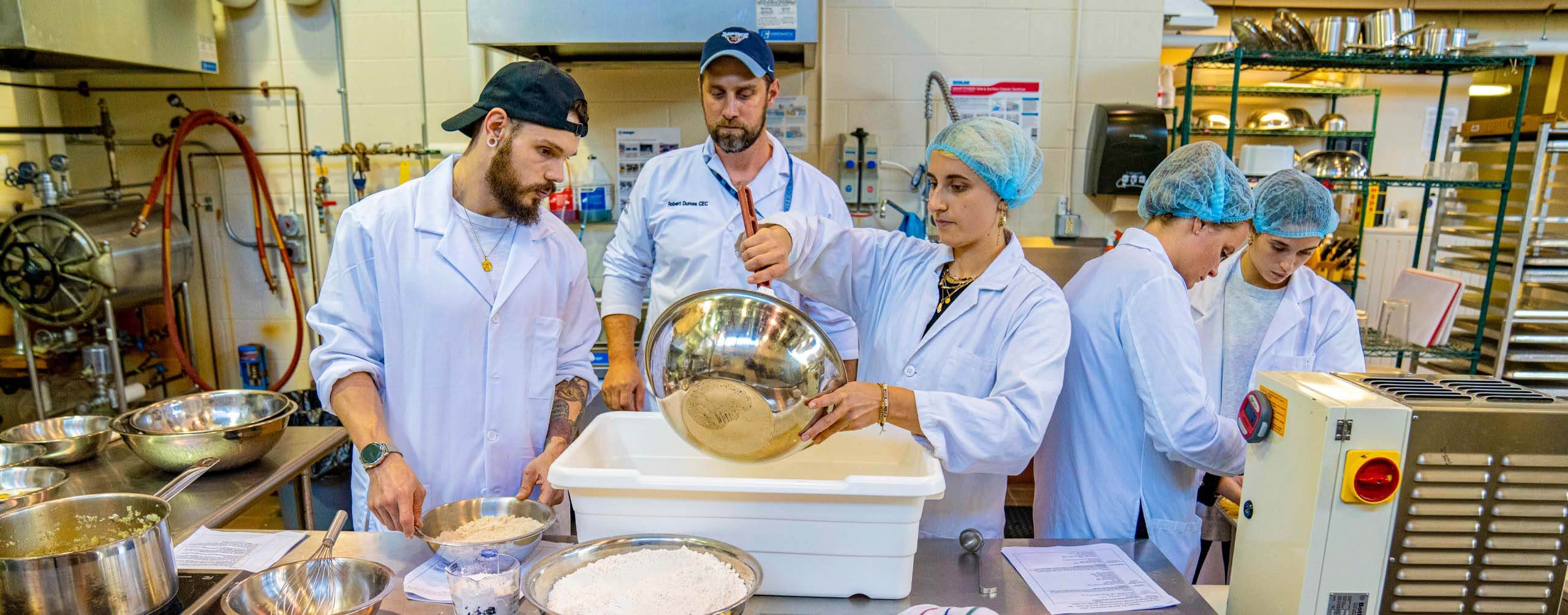
Food Science and Human Nutrition
College of Earth, Life, and Health Sciences
The Bachelor of Science degree in food science and human nutrition provides undergraduate education in three concentrations: food management, food science, and human nutrition and dietetics. Each concentration prepares students for different careers in the area of food science and human nutrition.
With in this major you can choose among three concentrations:
The Human Nutrition and Dietetics concentration prepares students for a broad range of careers in nutritional wellness and nutrition therapy to manage health conditions. Career pathways include wellness and community nutrition, nutrition counseling, clinical nutrition, sports nutrition, food service, nutrition policy, private practice, nutrition communication, and more. Career exploration classes are part of the curriculum, and students have opportunities for hand-on experience in the field.
The Food Science concentration involves the study of chemistry, microbiology, sensory, and other sciences through the lens of food. This prepares you for innovative careers in applied science and food technology. Food scientists are in high demands in the workforce and have careers ranging from the creation of new food products to quality control for manufacturing to sensory evaluation of food products. Internship experience is part of your degree requirements.
The Food Management concentration provides a unique combination of food and business courses to prepare students for a wide variety of career opportunities in the management of food and food resources. Choosing a minor is encouraged and further personalizes your course of study. Students can go on to run their own food business or work for organizations that manage food resources.
In FSN you can work in state-of-the-art facilities for learning and research. The commercial kitchen teaching lab offers experience in cooking and food preparation on commercial grade equipment. The Highlands Pilot Plant facility allows you to learn how to operate food processing equipment and work on food innovation projects. The Lynch Lab has tools to measure body compositions, anthropometric measurements, and community nutrition education resources. The Consumer Testing Center in the place to learn about sensory evaluation and sensory sciences.
Eileen Molloy
Undergraduate Program Coordinator
Hitchner Hall, Room 111
207.581.3121
Food Science and Human Nutrition
College of Earth, Life, and Health Sciences
Hitchner Hall, Room 111
207.581.3121
